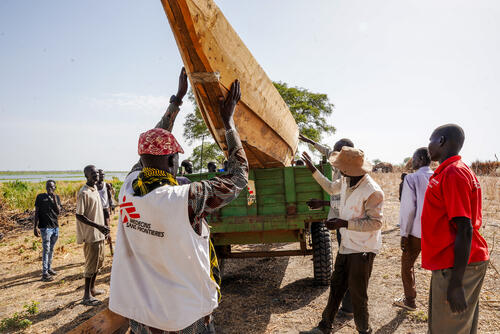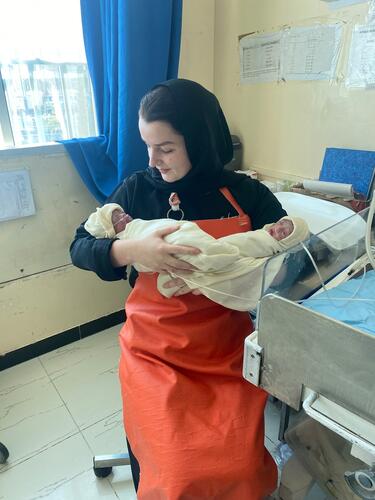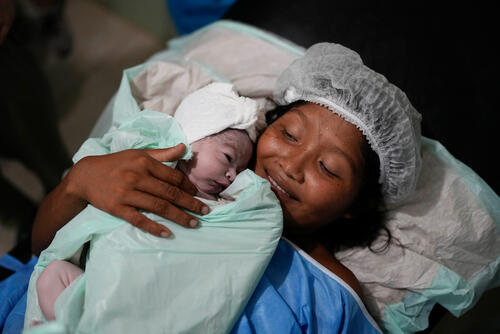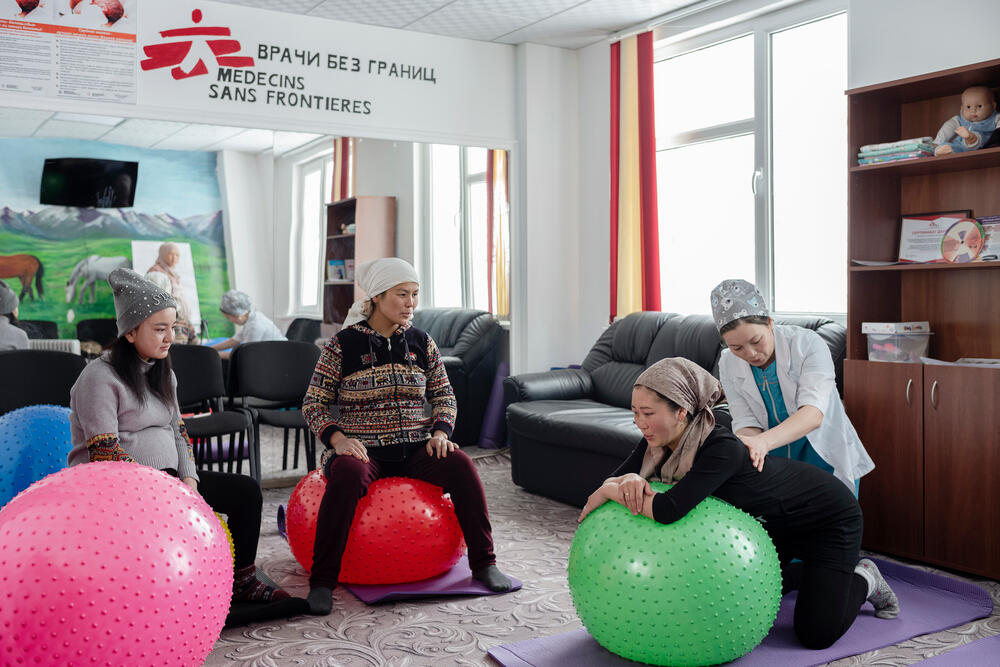Maternal health
Many women across the world give birth without medical assistance.
This massively increases the risk of complications or death. Ninety-four percent of these deaths are in low- and middle-income countries. The majority are preventable with appropriate care.
Our healthcare teams work together with pregnant women to provide delivery services, emergency obstetric care and post-delivery consultations.
We work with midwives and traditional birth attendants to establish programmes so complicated births can be identified quickly to help prevent maternal deaths.
"Obstetrics in Sierra Leone, as I’m sure is the case in many developing countries, is far removed from the world I have trained and worked in,” say Benjamin Black, a UK obstetrician who first worked with MSF in Sierra Leone.
“There is little in the way of antenatal care, nearly no-one has had an ultrasound scan, there’s no proper foetal monitoring and presentations are often complicated and late.
“The aim of care here is ultimately to keep mothers alive and avoid putting a scar on their uterus (caesarean section), as you don’t know where they will deliver next time."
In 2022, MSF staff assisted 320,700 births across the world.
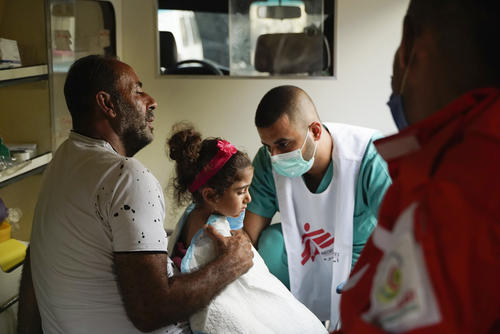
Get closer to the Frontline
Get the latest news, stories and updates, straight to your inbox.
Spotlight: Maternal health care in Afghanistan
Maternal health: Key facts
295,300
BIRTHS ASSISTED BY MSF TEAMS IN 2022, INCLUDING CAESAREAN SECTIONS
94%
OF ALL MATERNAL DEATHS OCCUR IN LOW AND LOWER MIDDLE-INCOME COUNTRIES
800
WOMEN DIED EVERY DAY FROM PREVENTABLE CAUSES RELATED TO PREGNANCY AND BIRTH IN 2020
What causes maternal death?
Excessive bleeding, or postpartum haemorrhage, can happen following a complicated delivery.
Often it is caused by uterine atony, the inability of the uterus to contract. Normally after delivery the contraction of the uterus should stop the bleeding that occurs after separation of the placenta. Due to reasons like an incomplete separation of the placenta, uterine atony occurs and bleeding continues.
A woman can lose half a litre of blood in one minute and bleed to death rapidly unless action is taken quickly to stop the bleeding.
Reproductive tract infections (RTIs) can be contracted during pregnancy or in unhygienic conditions during delivery.
RTIs can cause inflammation of the uterus, or pelvic inflammatory disease, which can eventually cause maternal death. RTI symptoms include fever, shivering and abdominal pain.
Pre-eclampsia is a disorder which can occur during pregnancy, characterised by high blood pressure and protein in the urine.
Without help, pre-eclampsia can lead to eclampsia – one of the main causes of maternal deaths worldwide.
Eclampsia can lead to a woman presenting with life-threatening complications, such as convulsions, as well as swelling, sudden weight gain, headaches and changes in vision.
Obstructed labour can occur if the baby’s head is too large or the position is abnormal, blocking passage through the birth canal.
When a mother is malnourished or is young and therefore has an underdeveloped pelvis, the birth canal itself is often not wide enough to accommodate the head of the baby.
An obstructed labour can then cause a prolonged labour, defined as one lasting for longer than 24 hours. Labour of this duration can cause complications such as postpartum haemorrhage.
An unsafe abortion is defined as one performed by someone lacking the necessary skills or one which is done in an unhygienic environment, or both.
An unsafe abortion can lead to infection or haemorrhage and ultimately maternal death.
How do we respond?
Most maternal deaths are preventable. Access to healthcare during pregnancy and childbirth are essential to allow for appropriately timed interventions to be taken if complications do arise.
Prevention of postpartum haemorrhage involves identifying risk factors in the third stage of labour. MSF trains community health workers in countries like Sudan to identify warning signs.
If the complication is identified, oxytocin can be administered as a means of prophylaxis. If severe bleeding occurs, the uterus is massaged to empty it of any trapped blood clots, and IV fluids are administered.
Access to clean water and hygienic conditions during delivery, such as clean hands and a clean delivery surface like a plastic cover, are vital to preventing an RTI.
MSF has opened maternity hospitals in countries such as Afghanistan to allow for delivery in hygienic conditions.
If eclampsia develops, the mother may have seizures during delivery with life-threatening consequences. Skilled people and essential drugs are vital at the birth. Intervention varies widely and is highly dependent on the availability of access to obstetric care.
MSF provides emergency obstetric care in many resource-poor settings, such as Syria, to deliver drugs such as anti-hypertensives or to facilitate a caesarean section if needed.
Skilled staff are also essential in the management of a complicated delivery to quickly identify signs that intervention is needed. IV fluids and antibiotics may sometimes be necessary for prolonged labour.
It is also vital to identify when a caesarean section is necessary. MSF surgeons work in places like the Central African Republic and Pakistan to provide skilled staff for performing caesareans.
MSF provides counselling and support to women with complications from an unsafe abortion. We also provide contraceptives and information on planning pregnancies for women that want them. In many contexts, we are also able to provide safe abortion care to women who want it.
As part of our goal to reduce maternal mortality and suffering, MSF offers a range of contraception options to women at our projects all over the world.
Providing contraceptives helps prevent death and injury because it reduces the overall number of pregnancies, which can be dangerous for women with little access to health care. It also prevents unsafe abortions, another main cause of maternal mortality.
Spotlight: Contraceptives
News and stories: Maternal health
